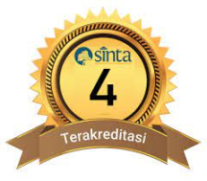Pengaruh strategi metakognitif dalam pembelajaran berbasis masalah terhadap pencapaian hasil belajar fisika siswa kelas XI SMAN 4 Padang
Abstract
Full Text:
Download PDFReferences
Asrizal, A.,Amran, A.,Ananda, A.,Festiyed, F.,danKhairani, S. 2018. Effectiveness of integrated science instructional material onpressure in daily life theme to improve digital age literacy ofstudents, International Conference on Science Education, doi :10.1088/1742-6596/1006/1/012031
Rahayu, P., Mulyani, S., dan Miswadi. 2012. Pengembangan Pembelajaran IPA Terpadu dengan Menggunakan model pembelajaran Problem Base melalui Lesson Study. Jurnal Pendidikan IPA Indonesia, Vol 1, 65.
Trianto. 2014. Model Pembelajaran Terpadu Konsep, Strategi, dan Implementasinya dalam Kurrikulum Tingkat Satuan Pendidikan (KTSP). Jakarta : Bumi Aksara.
Amelia, O. T., Yurnetti, Y., dan Asrizal, A. 2013. Pembuatan LKS Fisika Berbasis ICT dengan Mengintegrasikan Nilai Pendidikan Karakter Kelas X Semester 2, Pillar of Physics Education, Vol 2, 89-96.
Rochmawati, E., Hidayat, M. T., Isnawati. 2013. Pengembangan Lembar Kegiatan Siswa Berorientasi Penemuan Terbimbing (Guided Discovery Learning), BioEdu, Vol 2.
Widjjanti, E. 2008. Kualitas Lembar Kerja Siswa. Makalah disampaikan dalam kegiatan Pengabdian Masyarakat dengan Judul “Pelatihan Penyusunan LKS Mata Pelajaran Kimia Berdasarkan Kurikulum Tingkat Satuan Pendidikan Bagi Guru SMK/MAK”, Yogyakarta, 22 Agustus 2018.
Astuti, Y., Setiawan, B. 2013. Pengembangan Lembar Kerja Siswa (LKS) Berbasis Pendekatan Inquiry Terbimbing Dalam Pembelajaran Kooperatif Pada Materi Kalor, Jurnal Pendidikan IPA Indonesia, Vol 2.
OECD-PISA. 2015. Science Competencies for Tomorrow’s World. 1: Analysis. USA: OECD-PISA.
Kunandar. 2015. Penilaian Autentik (Penilaian Hasil Belajar Peserta Didik Berdasarkan Kurikulum 2013. Jakarta : Rajawali Pers.
Anggraini, G. 2014. Analisis Kemapuan Literasi Sains Siswa SMA Kelas X di Kota Solok, Prosiding Mathematics and science forum 2014, ISBN 978-602-0960-00-5.
Asyihari, A., dan Hartati, R. 2015. Profil Peningkatan Kemampuan Literasi Sains Siswa Melalui Pembelajaran Saintifik, Jurnal Ilmiah Pendidikan Fisika Al- BiRuNi, Vol 4, 179-191.
Pertiwi, U. D., Atanti, R. D., dan Ismawati,R. 2018. Pentingnya Literasi Sains Pada Pembelajaran IPA SMP abad 21, Indonesian Journal Of Natural Science Education, Vol 1, 24-29.
Sjukur, S. B. 2012. Pengaruh Blended Learning Terhadap Motivasi Belajar dan Hasil Belajar Siswa Tingkat SMK, Jurnal Pendidikan Vokasi, Vol 2, 368-378.
Sugiyono. 2012. Metode Penelitian Kuantitatif, Kualitatif, dan R & D. Bandung : Alfabeta.
Ngalim, M. P. 2012. Prinsip-prinsip dan Teknik Evaluasi Pengajaran. Bandung : Remaja Rosdakarya.
Arafah, S. F., Ridlo, S., dan Priyono, B. 2012. Pengembangan LKS berbasis berpikir kritis pada materi animalia. Unnes Journal of Biology Education, Vol 1, 48.
Amri, S. 2013. Pengembangan & Model Pembelajaran dalam Kurrikulum 2013.Jakarta : Prestasi Pustaka Publisher
Anggraini, G. 2014. Analisis Kemapuan Literasi Sains Siswa SMA Kelas X di Kota Solok, Prosiding Mathematics and science forum 2014, ISBN 978-602-0960-00-5.
Asrizal, A., Amran, A.,Ananda, A., Festiyed, F., dan Sumarmin, R. 2018. The Development Of Integrated Science Instructional Materials To Improve Students Digital Literacy In Scientific Approach, Vol 4, 442-450.
Hutagaol, K. 2013. Pembelajaran Kontekstual Untuk Meningkatkan Kemampuan Re presentasi Matematis Siswa Sekolah Menengah Pertama, Jurnal Ilmiah Program Stud Matematika STKIP Siliwangi Bandung, Vol 2, 85-99.
DOI: http://dx.doi.org/10.24036/4933171074








